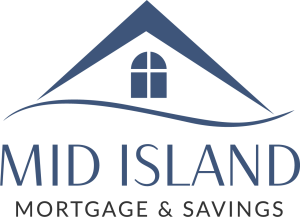Canada’s Public Housing Policy
Canada’s New Public Housing Strategy: What It Means for Nanaimo Buyers and Homeowners
Canada has introduced a national housing plan aimed at addressing the housing shortage and improving affordability, particularly for first-time buyers. The strategy’s goal is ambitious: to double residential construction and build up to 500,000 new homes per year over the next decade. For homebuyers and owners on Vancouver Island, BC, this could mark a turning point in housing availability, affordability, and development opportunities.
Build Canada Homes (BCH)
A key element of the plan is the creation of a new federal agency, Build Canada Homes (BCH). Its role is to:
-
Act as a public developer, building affordable housing at scale using federal and public land.
-
Provide $25 billion in debt financing and $1 billion in equity financing to support the growth of Canadian modular and prefabricated housing industries.
-
Offer long-term land leases and support innovative building methods that reduce construction time, cost, and environmental impact.
BCH will function independently from the Canada Mortgage and Housing Corporation (CMHC), allowing it to focus on rapid delivery of affordable housing, while also supporting job creation in construction and skilled trades.
Supporting Policies: Public Lands and the Housing Accelerator Fund
The federal government is also unlocking hundreds of surplus federal properties through the Public Lands for Homes Plan. These lands will be repurposed for affordable housing development, often under long-term leases to keep costs down. The goal is to build 250,000 units on public land by 2031.
In addition, the Housing Accelerator Fund continues to support municipalities—like Nanaimo—that are streamlining their zoning and permitting processes to encourage more housing development. The fund is expected to help generate up to 750,000 new homes nationally over the next decade.
What This Means for Nanaimo
More housing supply could create better buying opportunities in the Nanaimo area, especially for first-time homebuyers who have struggled with rising prices and tight inventory. Prefabricated and modular home construction could become more common, reducing build times and improving affordability in local developments.
With increased federal investment in skilled trades and materials like mass timber and softwood lumber, Vancouver Island’s forestry and construction sectors may also benefit from renewed growth and employment.
Builders and developers in Nanaimo could also access low-cost financing, land leases, and BCH partnership opportunities to bring more housing to market faster—particularly mid-density and multi-unit projects that align with municipal zoning reforms.
Considerations for Buyers and Homeowners
While the policy direction is promising, actual housing starts across Canada are still well below what’s needed to meet demand. Federal and provincial coordination, along with private-sector participation, will be critical to turning plans into results.
For buyers, especially those in Nanaimo looking to enter the market, the introduction of more affordable housing could ease price pressure over time. For current homeowners, now may be an ideal time to evaluate refinancing options while interest rates stabilize and before new supply potentially affects market dynamics.
Key Takeaways for Mortgage Clients
-
First-time buyers should stay informed about new developments supported by BCH or municipal initiatives that could expand local housing options.
-
Homeowners may benefit from refinancing ahead of broader market shifts as new inventory begins to roll out.
-
Builders and investors should monitor opportunities tied to federal land leases and modular housing financing.
Conclusion
Canada’s new housing strategy is a significant step toward restoring balance in the housing market. In cities like Nanaimo, where affordability and supply have become growing concerns, this federal initiative could open doors for new buyers, expand construction capacity, and improve housing affordability over time.
As these changes take shape, mortgage professionals play a vital role in helping clients make well-timed, informed decisions—whether buying, refinancing, or investing in the local housing market.
What Rate Cuts Mean to Borrowers




